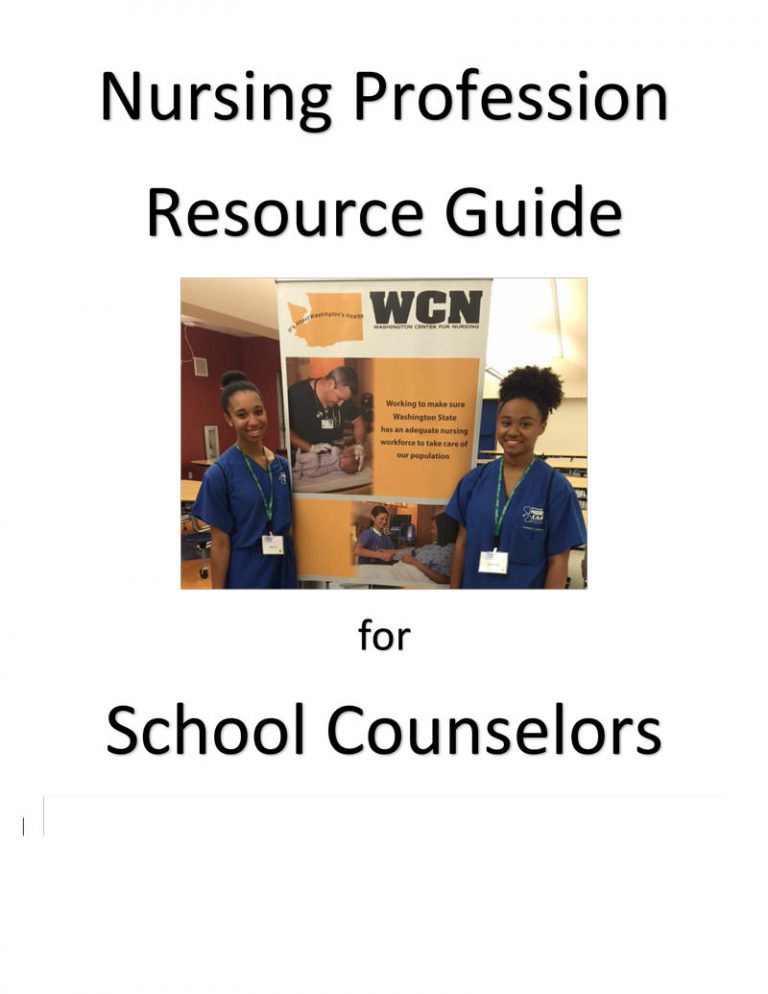Helpful Information
Connect with WCN
- Home
- Be A Nurse
- Helpful Information
Helpful Information
Nursing Profession Resource Guide for School Counselors
Grades K-7
Ready, Set, Grad: WA’s comprehensive career and college readiness website for 6th grade through continuing education students, their families, and educators.
Grades 8-12
In Middle School or High School? Here’s What You Can Do Before Getting To College To Get Started On A Path To Becoming A Nurse
When you get to middle school and high school, take math, like algebra and geometry. This is important for calculating medication dosages and applying scientific principles. Science classes like biology, chemistry, and physics will help you understand how the human body works. And computer classes will teach you to be more comfortable with the variety of machines nurses use, such as ventilators, used to monitor organs like the heart and the brain. Plus, nurses use computers every day to communicate and record how their patients are doing. Students should also take English and communication classes to learn to write and speak well.
These classes will give you a head start on your nursing program in college. Additional classes will focus on the science of nursing and will often need skills in advanced math and science. Nursing students often work together and will learn to work well in a team.
For now, talk to your counselor about what classes you can take now or in the next few years.
Many university nursing programs and large hospitals offer nurse or healthcare camps – look for one in your area. It’s a fun experience where you can spend time with nurses and meet lots of other students interested in nursing. You will see firsthand what nurses do every day. It’s a great way to explore and see yourself as a future nurse.
Look for “Health Explorer” groups in your community, which bring in experts to talk about their profession.
Do you have a relative, family friend or a neighbor who is a nurse? Talk to them about their work. Ask what they enjoy about the job and what they find difficult. They might have some valuable advice!
In middle school and high school, talk to your counselor or college advisor about nursing. Together, you can look at a college or university that has a nursing program that works for you.
Remember, if you’re squeamish and don’t like blood, that doesn’t mean you can’t be a nurse. It’s such a broad field where you can focus on research or education – and not touch needles – and still make a difference in health care.
You don’t have to decide right now what you’d like to be when you grow up – but it’s a great time to start thinking about what you enjoy. If you want to spend your time helping others and making sure people are healthy, maybe nursing is in your future!
Second Career Adults
Washington Career Bridge: You can start your Health Care career in many different places, depending on your education. Visit the Washington Career Bridge to find jobs organized by how much education and training they require. Additional education can lead to higher-paying, more skilled health care careers.
The Puget Sound Welcome Back Center at Highline Community College provides counseling and educational services to help prepare internationally trained healthcare professionals to practice their healthcare profession in Washington State.


